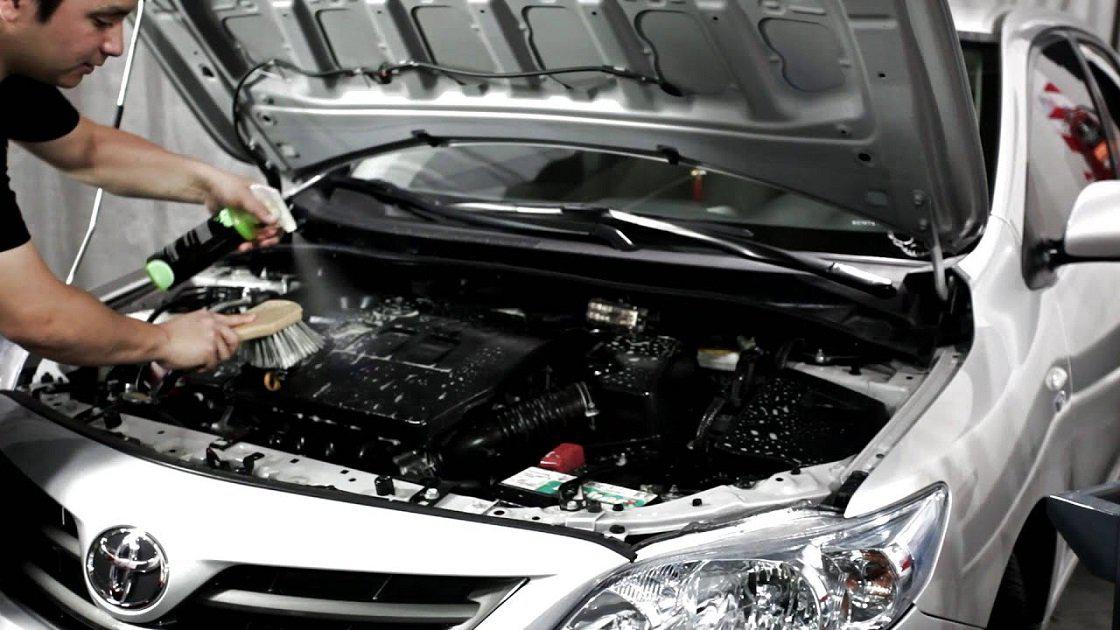The fines for washing the car and changing the oil on the street, leaving the engine running...
DGT | Traffic
Incredible as it may seem, these activities are prohibited in many cities and the fines reach 1,500 euros
UpdatedThey seem innocent and unimportant behavior, but some customs that seem so usual and familiar to us such as washing the car in the street on Sunday mornings, changing the engine oil on our own or carrying out small repairs on public roads are strictly prohibited by the General Regulation of Circulation (RGC) and are activities sanctioned by the municipal ordinances of many localities of Spain.
Fine for washing the car in the street
The Civil Guard has just recalled this, which also encourages people to call 062 to report any of these 'uncivil and irresponsible' attitudes. "Changing the oil in the car on the street is punishable, an environmental savagery and a filthy thing. Complain by calling 062," the Civil Guard has requested through its Twitter account. Other times remember that cleaning the car on public roads is also a reason for a fine and a 'savagery': "Wash the car on the street is punishable, harmful to the environment and dirty".

Fine for changing car oil on the street
Indeed, these behaviors are expressly prohibited by article 4.2 of the RGC, considering that they are activities that "affect traffic safety". The text of the article reads as follows: "It is prohibited to throw, deposit or abandon objects or materials on the road that may hinder free movement, stopping or parking, make them dangerous or damage the road or its facilities, or produce negative effects on it or in its surroundings. that modify the appropriate conditions for circulating, stopping or parking (article 10.2 of the articulated text)".
Up to 1,500 euros fine
Those responsible for sanctioning these activities are the municipalities, and the fines can amount to up to 1,500 euros in some cases. The Madrid City Council, for example, collects and sanctions these infractions in the Ordinance on Cleaning of Public Spaces and Waste Management, approved in 2009. According to article 14 of said provision "it is prohibited to wash or clean any motor vehicle in the public highway, as well as changing oils or other liquids of the same in the public highway or carrying out any repair that could dirty the public highway.
The city council considers these behaviors as serious infractions, as stated in article 87 of the aforementioned ordinance, and equates them to another type of prohibition such as "performing physiological needs on public roads or spaces." When considering them serious infractions, the corresponding fine can range from a minimum of 751 euros to a maximum of 1,500 euros.
Fine for being stopped with the engine running
The Barcelona City Council also prohibits "parking, cleaning, repairing or carrying out maintenance work on vehicles or mopeds", both on public roads and in green spaces. Any of these activities are considered serious offenses and fines can be up to 1,500 euros.
Also, in Barcelona you can be fined for something as apparently innocent as being stopped with the vehicle's engine running. According to the Barcelona City Council Environment Ordinance, "it is prohibited, except in situations of traffic congestion, for vehicles stopped on public roads or in other public spaces to remain with their engines running for more than two minutes". According to article 44-3 of said ordinance, not even public vehicles are released.
Mandatory to turn off the engine
In Madrid it is also a minor infraction of the Sustainable Mobility Ordinance and is sanctioned with a fine of 100 euros. According to article 46 of said provision, "whoever drives must turn off the engine from the beginning of the parking lot, even when they remain inside the vehicle."
According to the Madrid regulation, "excluded from this obligation, although its application is recommended whenever possible, are vehicles that have category 0 Emissions of environmental classification, those intended for the provision of socio-health care and those belonging to State Security Forces and Bodies, Municipal Police, Mobility Agents and Firefighters and Municipal Crane". Public passenger transport vehicles are also excluded exclusively between May 1 and September 30, as they coincide with the hottest months and it is necessary to leave the engine running for the air conditioning to work.
It is forbidden to tie motorcycles or bicycles to trees and lampposts
Another custom that is prohibited in most cities is chaining or tying bicycles, motorcycles and mopeds to lampposts, trees or any other ornamental element or urban furniture that is not expressly placed for that purpose. Some municipalities, such as that of Madrid, contemplate the removal of bicycles and personal mobility vehicles (VMP) to the municipal deposit "when they remain parked in the bicycle racks or tied to urban furniture, trees or any other element installed on public roads (for a period greater to one month), and there is no person responsible for them".
Subscribe to the BRAND Cars Newsletter and receive in your email, from Monday to Sunday and first thing in the morning, all the news about the automobile sector: tests, comparisons, videos, photos... The best cars in the world in your email.
Search cars by:
The page will be reloadedFilter by brandFilter by modelFilter by typeFilter by brand Traffic End of the state of alarm: restrictions and mobility In which Communities can you travel from May 9? future highway tolls?TrafficTolls on highways of one cent per kilometer: the idea that the Government is considering








3985